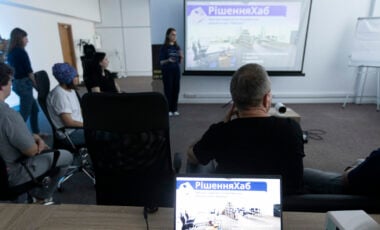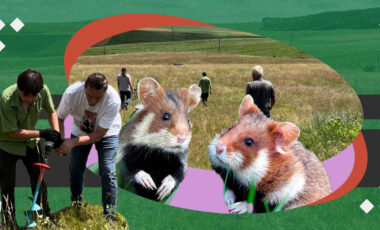Over million Ukrainians join nationwide media literacy class

On October 6, Ukraine's Culture Ministry hosted a lesson for grades 5-11 dedicated to media literacy, which brought together almost a million students.
What is the problem?
Media literacy is a part of media education that allows audiences to critically analyze media messages to see propaganda and censorship to consciously perceive information, understand myths, and types of control they cultivate, the reasons for such actions, and to understand the structural elements that influence information (media owner, funding model, political preferences, etc.).
These skills allow Ukrainians to distinguish between truthful messages providing quality information and those containing misinformation or self-serving calculations.
What is the solution?
Ukrainians feel the need to develop media literacy, especially during the full-scale war. Low-quality information can be confusing and harmful.
Many countries around the world have long since begun to build their own strategies to combat disinformation. However, Ukraine has just recently started working on nationwide media literacy.
How does it work?
The nationwide unity lesson on media literacy for grades 5-11, held on October 6, brought together almost a million Ukrainians.
The National Media Literacy Project "Filter" together with Public Broadcasting held a lesson on media literacy. Viewers learned how to counteract social stereotypes, who bots and trolls are, how to consume information wisely and not fall for manipulations, the press release says.
This year's lesson taught students how to resist enemy narratives that divide society.
This lesson is a great opportunity for students, parents, and teachers to unite in such a symbolic act. I must emphasize the point of unification in order to develop critical thinking and media literacy skills, said Ihor Khvorostianyi, top Culture Ministry official.
Such initiatives are important for the development of the New Ukrainian School reform, which sets the foundation for competency-based education. The formation of media-literate students is one of the priorities
On the day of the lesson, over 70,000 users watched the broadcast on YouTube. At the same time, the media coverage amounted to almost 600,000 contacts with the audience.






















































